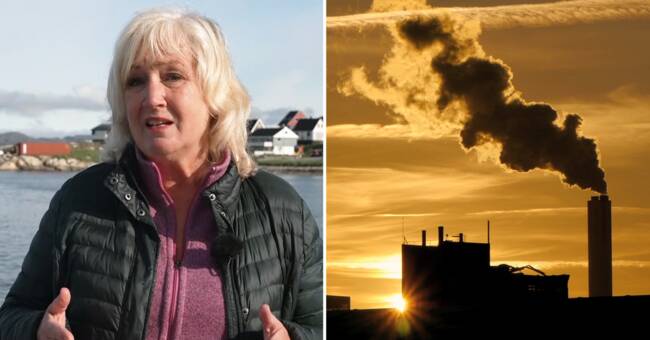The verdict on politicians' inability to heed the warnings will be harsh. Because it is not difficult to understand mathematics. Already at 1.2 degrees warming, the researchers state that we have created an extreme weather they hardly thought was possible. At warmer temperatures, the atmosphere can retain more moisture. People die in the downpours. In China, people said a final goodbye and sent bank codes to their loved ones when they had water up to their shoulders, trapped in subway cars. It rained as much in one day as it normally does in one year. The planet is becoming our enemy. By 2050, 1 billion people could be on the run due to droughts and floods, according to the UN.
"The climate is doped by human emissions," said WMO Secretary-General Petteri Taalas at this morning's press conference when the IPCC presented its report, a compilation of thousands of research reports.
The extreme weather has just begun
A doped climate means in clear text a significant health hazard for humans.
And no one gets away.
One of the few news items in the IPCC report is an interactive map where all regions can see how the climate crisis will affect them.
The sad thing is that the IPCC report does not in fact contain anything new. Many of the conclusions have already been published in individual research reports. The wording has admittedly been sharpened, now it is written that it is "unambiguous" that the human impact on the climate leads to extreme weather. With the help of refined climate models, one can more clearly see the consequences of the relationship between the burning of fossil fuels and the increase in temperature.
It is warmer than in 100,000 years.
And the extreme weather has just begun.
But it is important not to whip up a panic mood despite the fact that the report comes at the same time as nightmare-like images of burning Greek islands, torrential rains and melting ice.
With media headlines today such as "UN horror report", "We can not escape" and "Hell on earth" accompanied by images of fleeing people, it is easy to feel like in a doomsday movie from Hollywood.
Governments lack concrete action plans
Instead, it is high time to ask two cool questions; exactly what is required for the heating to stay below two degrees? Because there is still a time window according to the UN climate panel. That is the only good news in the misery catalog. But governments' lack of concrete action plans is actually more shocking than the content of the IPCC report. Ever since 1988, researchers' warnings have been crystal clear. For each year, the forecasts have become more certain. And politicians have admittedly come up with emission targets far into the future at the same time as emissions are steadily increasing.
It is one thing to decide that emissions should be zeroed by 2050. But what does the timetable look like on the way there?
How should emissions be able to come down by 5-6 percent every year when it is not even politically possible to raise the price of petrol?
When will the use of oil be banned?
And how should the drastic change take place in a socially just way so that it does not increase the polarization between urban rural areas, low-income earners and high-income earners?
And how do politicians intend to protect people's lives and property in the increasingly extreme weather?
Politicians can still show leadership
In the international media today, great focus is placed on the failure of politics.
If you had started on time, the change would not have been as drastic as will now be required.
But mistakes can not be undone.
Politicians and companies can still show leadership.
Otherwise, there is a great risk that it will hamper contempt for politicians and the lack of young people to the democratic institutions.
But the world governments are still stuck in a political battle.
The 20 richest countries could not even agree to phase out coal power at the G20 summit in London recently.
According to the Financial Times, Saudi Arabia tried to stop the wording on "fossil emissions" in the final writing of the report and wanted the more diffuse "greenhouse gases".
Yes, on a day like this, it is clearly easier to be a journalist than a politician, and to ask the burning questions.
It remains to be seen what answers the politicians will have in their luggage when they meet at the global climate summit in Glasgow in November.
Because then the simple question is;
how are we going to save humanity from a roasting planet?

